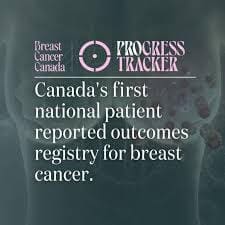What task force and guideline reform could mean for breast cancer screening and the future of women’s health in Canada
In a long-awaited move that could reshape the landscape of preventive health care in Canada, Minister of Health Marjorie Michel has announced the federal government’s acceptance of the External Expert Review (EER) report aimed at modernizing the Canadian Task Force on Preventive Health care an organization responsible for how the country develops guidelines for disease prevention.
See AskEllyn’s blog on the Canadian House of Commons Committee’s call for the rebuilding of the Canadian Task Force on Preventive Health Care
The report, titled Modernizing Preventive Health Care Guideline Development in Canada: A Way Forward, offers sweeping recommendations to improve transparency, scientific rigor, and public trust in guidelines such as those for breast cancer screening—guidelines that have sparked national debate in recent years.
“The EER Panel’s report outlines key recommendations and system-wide actions to strengthen preventive health guidance in Canada,” Minister Michel said in a public statement from Ottawa on June 13. “I have asked PHAC [the Public Health Agency of Canada] that the modernized Task Force be fully operational by April 2026.”
Why Reform of the Canadian Task Force on Preventive Health Care Matters—Especially for Breast Cancer Survivors and Advocates
The Canadian Task Force on Preventive Health Care has faced mounting scrutiny, particularly over its controversial breast cancer screening guidelines, which recommend that average-risk women under 50 not receive routine mammograms—a stance criticized by organizations such as Dense Breasts Canada and many oncologists, radiologists, and patient advocates, including the creators of AskEllyn.
“These outdated guidelines have failed women for over a decade,” said Ellyn Winters-Robinson, breast cancer survivor and co-creator of AskEllyn. “We hear daily from women who were diagnosed at late stages because early screening wasn’t recommended or funded. This review of the Canadian Task Force on Preventive Health Care is a crucial first step toward putting science and lived experience back into the heart of health policy.”
“The EER report clearly underscores the need for a modern, responsive, accountable, transparent, inclusive, and expert Task Force. Its recommendations address many of our longstanding concerns with the Task Force and its guidelines. We look forward to the proposed recommendations being implemented to improve health outcomes for all Canadians. At Dense Breasts Canada (DBC) we’ve spent the past eight years advocating for Task Force reform—not just for breast screening guidelines, but to address broader issues with its practices, accountability, and lack of oversight and diverse expertise, said Jennie Dale, Managing Director of Dense Breasts Canada.
What the Report Recommends
Minister Michel’s statement confirms that the review addressed the governance, mandate, and scientific processes of the Canadian Task Force on Preventive Health Care. Among the expected recommendations are:
- Greater inclusion of patient and survivor voices in the development of guidelines
- Stronger alignment with emerging science and international best practices
- More agile, transparent decision-making to reflect Canada’s diverse health care needs
PHAC has committed to begin work immediately with experts and stakeholders to act on the report’s recommendations. The goal is to have a modernized Canadian Task Force Preventive Health Care in place by April 2026.
A Turning Point for Preventive Health Care in Canada
For Canadian women—especially those at risk of breast cancer—this announcement may represent a long-overdue turning point. Advocates hope that future guidelines will take a more individualized approach, recognize dense breast tissue and genetic risk, and offer screening access based on science, not just statistics.
“This could finally signal the end of a one-size-fits-all approach to women’s health,” Winters-Robinson said. “But implementation will be everything. Survivors, clinicians, and public health professionals need a seat at the table—not just a comment form after decisions have already been made.”
The Canadian Task Force on Preventive Health Care also extends beyond breast screening. The Task Force is also responsible for guidelines for colorectal, prostate, cervical and thyroid cancer screenings and postpartum depression among many other diseases and diagnoses. Modernization of the Task Force should have wide-sweeping impact on preventative healthcare in Canada, no doubt, saving countless lives.
What’s Next?
PHAC has pledged to engage meaningfully with stakeholders across Canada as it begins the work of implementing the review’s findings. AskEllyn will continue to follow this story closely and provide updates on how these changes may affect breast cancer screening guidelines and broader women’s health policies.
To stay informed and be part of the conversation, subscribe to our newsletter and follow us on YouTube.
At AskEllyn, we believe informed choices and early screening save lives. If you have questions about breast cancer screening or survivorship, our AI companion is here to help.




